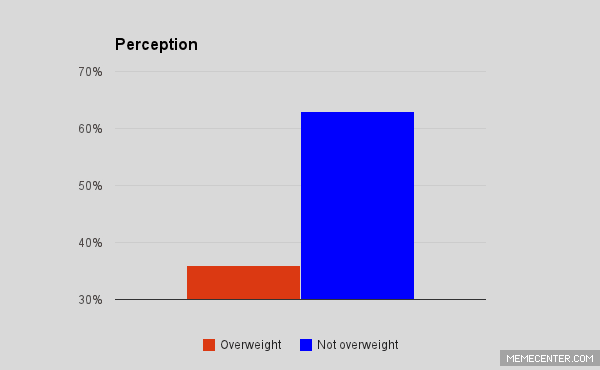Israel’s political system was shaken to its core on Monday when the Labor Party—part of the ruling coalition—crumbled following the unexpected announcement by its leader and defense minister Ehud Barak that he and four others were leaving the Party to form a new parliamentary faction, “Independence.”
Within hours of the announcements, three Labor Party ministers resigned from government. The Labor Party has not yet formally announced it is leaving the coalition, but the remaining members—there were 13 in the Knesset—will have to elect a new leader and decide its next steps.
Netanyahu is expected to sign a coalition agreement with the new “Independence” faction then fill the vacant ministries in the coming days.
Labor has been plagued by internal ideological dissent for years, particularly over its coalition partnership with right-wing Likud, which has never sat well with some members. Meanwhile, other members, such as Barak’s group, have complained that Labor has lost its foundations and moved too far to the left.
Barak said in his stunning announcement that his break-off group will return to more traditional values that the country was founded upon.
Labor ruled Israel from its inception in 1948 to 1977 and has continued to be one of the two main parties, along with right-wing Likud.
“We are founding today a faction, a movement, and then a party that would be Zionist, centrist, and democratic. A movement that would abide by the values of the Deceleration of Independence and the principle of state-ism of David Ben-Gurion,” said Barak in a press conference broadcast on Israeli television channels.
Barak lamented the factionalism within the Labor Party and accused members of moving the Party too much to the left.
Within hours of the announcement, the three Labor ministers, in three separate press conferences, announced their resignations from government: Industry, Trade and Labor Minister Benyamin Ben Eliezer; Minister of Trade and Labor, Welfare and Social Services Minister Yizhak Herzog; and Minority Affairs Minister Avishai Braverman.
“The Labor Party that founded the country got rid today of a hump on its back,” said Herzog in his resignation speech referring to Barak. “We now have a chance to create change in the Labor Party. To bring new forces and to put the social doing on top of the Party’s agenda.”
“My only consideration was the diplomatic [peace] process. In my view the diplomatic issue is an existential question for the state of Israel,” said Ben Eliezer in his resignation speech. “We saw today something that should not be done: A head of a party and faction members leaving a party on the sly.”
Knesset (Israel’s legislature) opposition leader Tzipi Livni also criticized Barak during a Kadima Party meeting. Kadima, currently the largest party in the Knesset, is a centrist party and a strong supporter of the peace process.
“Today the public sees who its leaders are, it sees who keeps his principles and who sells everything for a chair [in the government], who keeps his path, and who abandons it.”
Livni also commented on the similarities between the forming of the new Independence faction and the founding of her own party, which was born after former Prime Minister Ariel Sharon split from the Likud party. The difference, said Livni, is that Kadima was founded out of ideology, to propel the peace process, which is not this case here in her opinion.
“This split is a split for lack of any other option,” said Livni. “This is the split of the ideologically spineless.”
For many, Barak’s move symbolizes the end of an era in Israeli politics. At the Labor Party’s zenith, labor unions, hospitals, cooperative agricultural farms, schools, and many financial institutions were associated with it. Some even claimed that the Labor Party and the state were one and the same.
“The Labor Party finished its role,” said Dr. Orit Galili-Zucker, a political scientist from Bar-Ilan University commenting on the day’s events. “It is clear that what we saw here is a deal between Netanyahu and Barak,” she said adding that there is no ideological base for the new movement. “It is just a political arrangement.”
The decision is somewhat of a euthanasia for Labor, which was artificially kept alive for many years, said Galili-Zucker. “Barak disconnected the oxygen tube.”
Within hours of the announcements, three Labor Party ministers resigned from government. The Labor Party has not yet formally announced it is leaving the coalition, but the remaining members—there were 13 in the Knesset—will have to elect a new leader and decide its next steps.
Netanyahu is expected to sign a coalition agreement with the new “Independence” faction then fill the vacant ministries in the coming days.
Labor has been plagued by internal ideological dissent for years, particularly over its coalition partnership with right-wing Likud, which has never sat well with some members. Meanwhile, other members, such as Barak’s group, have complained that Labor has lost its foundations and moved too far to the left.
Barak said in his stunning announcement that his break-off group will return to more traditional values that the country was founded upon.
Labor ruled Israel from its inception in 1948 to 1977 and has continued to be one of the two main parties, along with right-wing Likud.
“We are founding today a faction, a movement, and then a party that would be Zionist, centrist, and democratic. A movement that would abide by the values of the Deceleration of Independence and the principle of state-ism of David Ben-Gurion,” said Barak in a press conference broadcast on Israeli television channels.
Barak lamented the factionalism within the Labor Party and accused members of moving the Party too much to the left.
Within hours of the announcement, the three Labor ministers, in three separate press conferences, announced their resignations from government: Industry, Trade and Labor Minister Benyamin Ben Eliezer; Minister of Trade and Labor, Welfare and Social Services Minister Yizhak Herzog; and Minority Affairs Minister Avishai Braverman.
“The Labor Party that founded the country got rid today of a hump on its back,” said Herzog in his resignation speech referring to Barak. “We now have a chance to create change in the Labor Party. To bring new forces and to put the social doing on top of the Party’s agenda.”
“My only consideration was the diplomatic [peace] process. In my view the diplomatic issue is an existential question for the state of Israel,” said Ben Eliezer in his resignation speech. “We saw today something that should not be done: A head of a party and faction members leaving a party on the sly.”
Knesset (Israel’s legislature) opposition leader Tzipi Livni also criticized Barak during a Kadima Party meeting. Kadima, currently the largest party in the Knesset, is a centrist party and a strong supporter of the peace process.
“Today the public sees who its leaders are, it sees who keeps his principles and who sells everything for a chair [in the government], who keeps his path, and who abandons it.”
Livni also commented on the similarities between the forming of the new Independence faction and the founding of her own party, which was born after former Prime Minister Ariel Sharon split from the Likud party. The difference, said Livni, is that Kadima was founded out of ideology, to propel the peace process, which is not this case here in her opinion.
“This split is a split for lack of any other option,” said Livni. “This is the split of the ideologically spineless.”
For many, Barak’s move symbolizes the end of an era in Israeli politics. At the Labor Party’s zenith, labor unions, hospitals, cooperative agricultural farms, schools, and many financial institutions were associated with it. Some even claimed that the Labor Party and the state were one and the same.
“The Labor Party finished its role,” said Dr. Orit Galili-Zucker, a political scientist from Bar-Ilan University commenting on the day’s events. “It is clear that what we saw here is a deal between Netanyahu and Barak,” she said adding that there is no ideological base for the new movement. “It is just a political arrangement.”
The decision is somewhat of a euthanasia for Labor, which was artificially kept alive for many years, said Galili-Zucker. “Barak disconnected the oxygen tube.”





